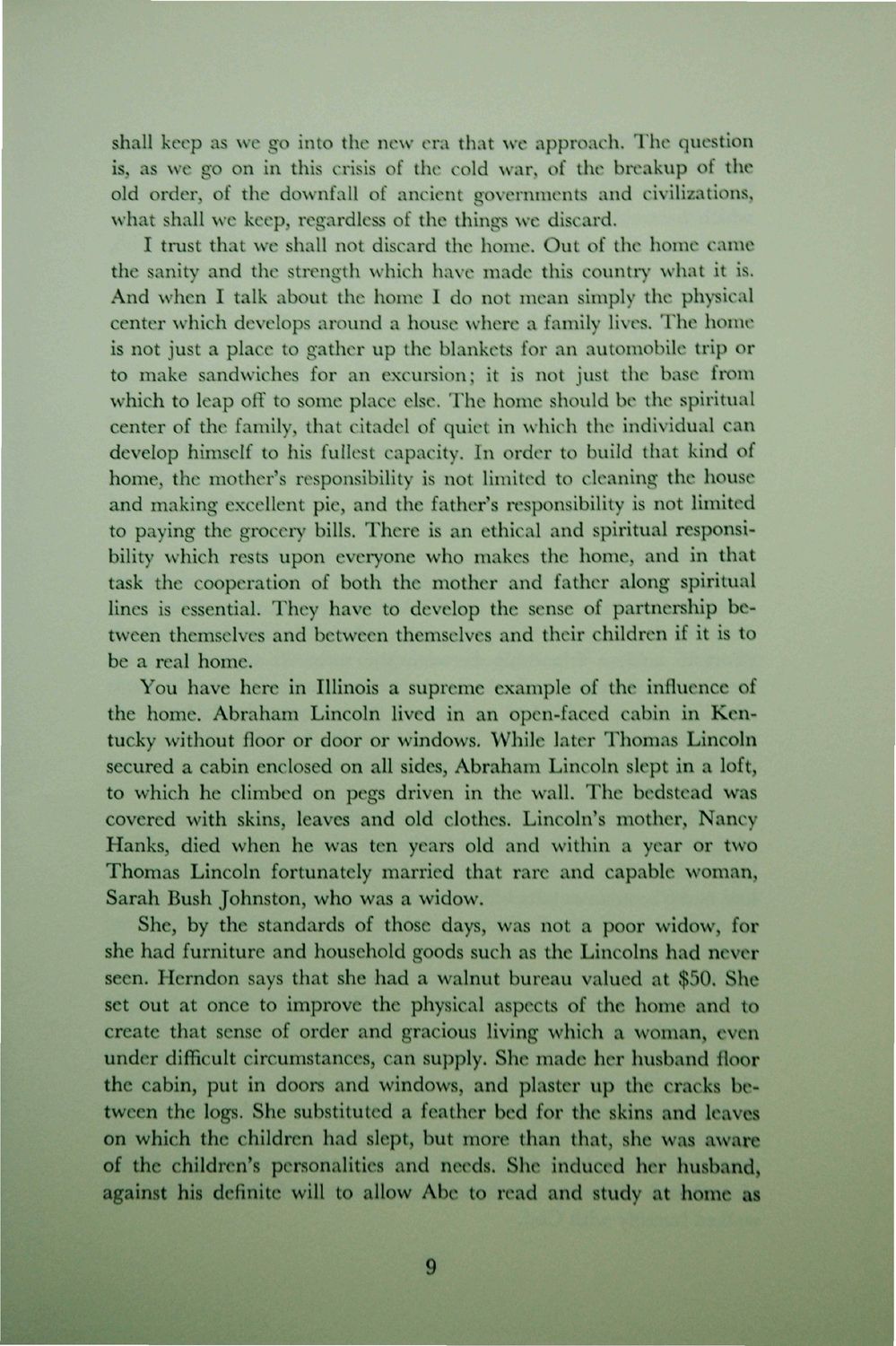| |
| |
Caption: Dedication - Home Economics - Challenge of Home Economics
This is a reduced-resolution page image for fast online browsing.

EXTRACTED TEXT FROM PAGE:
shall keep as we go into the new era that we approach* The question is, as we go on in this crisis of the cold war, of the breakup of the old order, of the downfall of ancient governments and civilizations, what shall we keep, regardless of the things we discard, I trust that we shall not discard the home. Out of the home came the sanity and the strength which have made this country what it is. And when I talk about the home I do not mean simply the physical center which develops around a house where a family lives. The home is not just a place to gather up the blankets for an automobile trip or to make sandwiches for an excursion; it is not just the base from which to leap off to some place else. The home should be the spiritual center of the family, that citadel of quiet in which the individual can develop himself to his fullest capacity. In order to build that kind of home, the mother's responsibility is not limited to cleaning the house and making excellent pie, and the father's responsibility is not limited to paying the grocery bills. There is an ethical and spiritual responsibility which rests upon everyone who makes the home, and in that task the cooperation of both the mother and father along spiritual lines is essential. They have to develop the sense of partnership between themselves and between themselves and their children if it is to be a real home. You have here in Illinois a supreme example of the influence of the home. Abraham Lincoln lived in an open-faced cabin in Kentucky without floor or door or windows. While later Thomas Lincoln secured a cabin enclosed on all sides, Abraham Lincoln slept in a loft, to which he climbed on pegs driven in the wall. The bedstead was covered with skins, leaves and old clothes. Lincoln's mother, Nancy Hanks, died when he was ten years old and within a year or two Thomas Lincoln fortunately married that rare and capable woman, Sarah Bush Johnston, who was a widow. She, by the standards of those days, was not a poor widow, for she had furniture and household goods such as the Lincolns had never seen. Hcrndon says that she had a walnut bureau valued at $50. She set out at once to improve the physical aspects of the home and to create that sense of order and gracious living which a woman, even under difficult circumstances, can supply. She made her husband floor the cabin, put in doors and windows, and plaster up the cracks between the logs. She substituted a feather bed for the skins and leaves on which the children had slept, but more than that, she was aware of the children's personalities and needs. She induced her husband, against his definite will to allow Abe to read and study at home as 9
| |